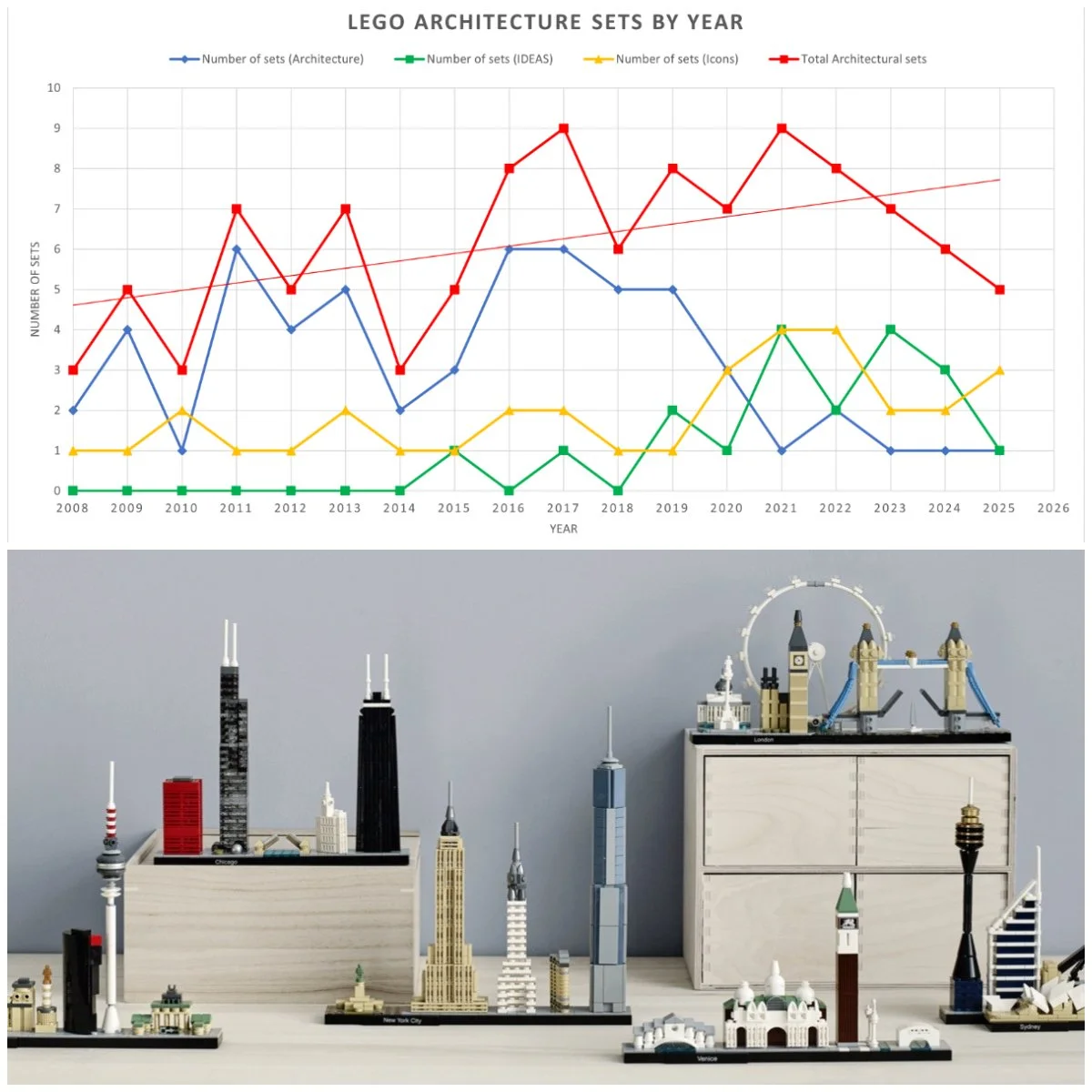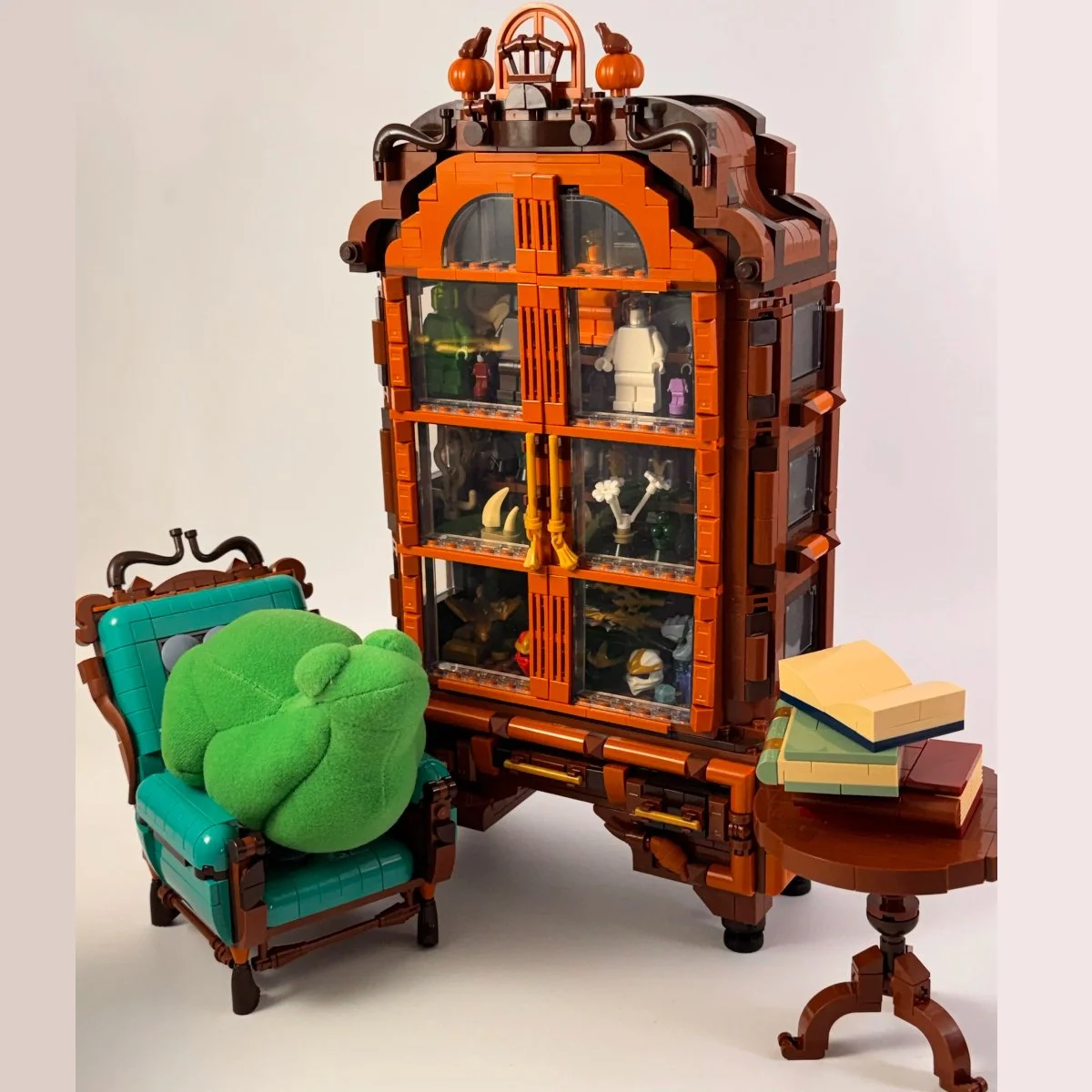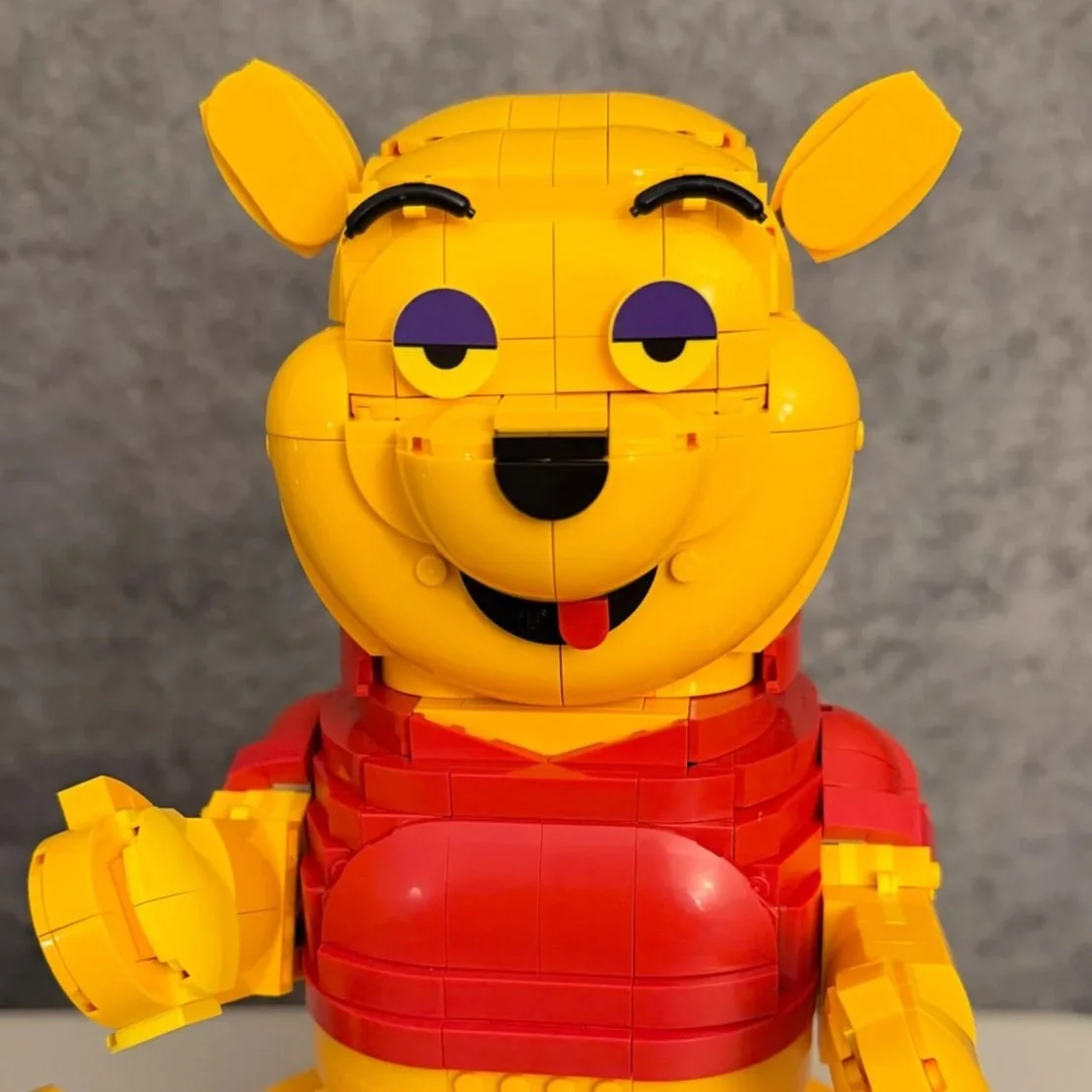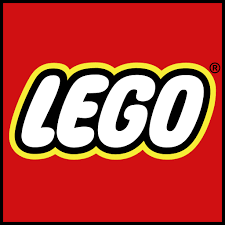Castle on a Hill: An Architectural Tour of Himeji Castle
/LEGO Architecture 21060 Himeji Castle is quite a stunner. When BrickNerd was offered a copy of the set from LEGO, we knew we wanted a local perspective. Our guest contributor Masayuki Muraki, known to his followers as @legoanywhere, is a talented LEGO photographer from Japan known for photographing minifigures, erm, anywhere!
He has turned everyday scenes into captivating tales, breathing life into our favorite bricks and incorporating them into our world. Today he shares with us not only his awe-inspiring photographs but also his insights and perspectives on LEGO’s take on this iconic Japanese castle.
But First, An Introduction
My name is Masayuki Muraki, and I am a LEGO photographer from Japan. If my memory serves me right, the first toy I received from my grandmother as a child was a LEGO set. Looking at the photos from my childhood, it seems like I always carried LEGO with me wherever I went! I must have always wanted my favorite toy to be by my side. While I enjoyed building with LEGO during my childhood, as I grew up, taking photos using LEGO became my hobby. Here are some of my photos:
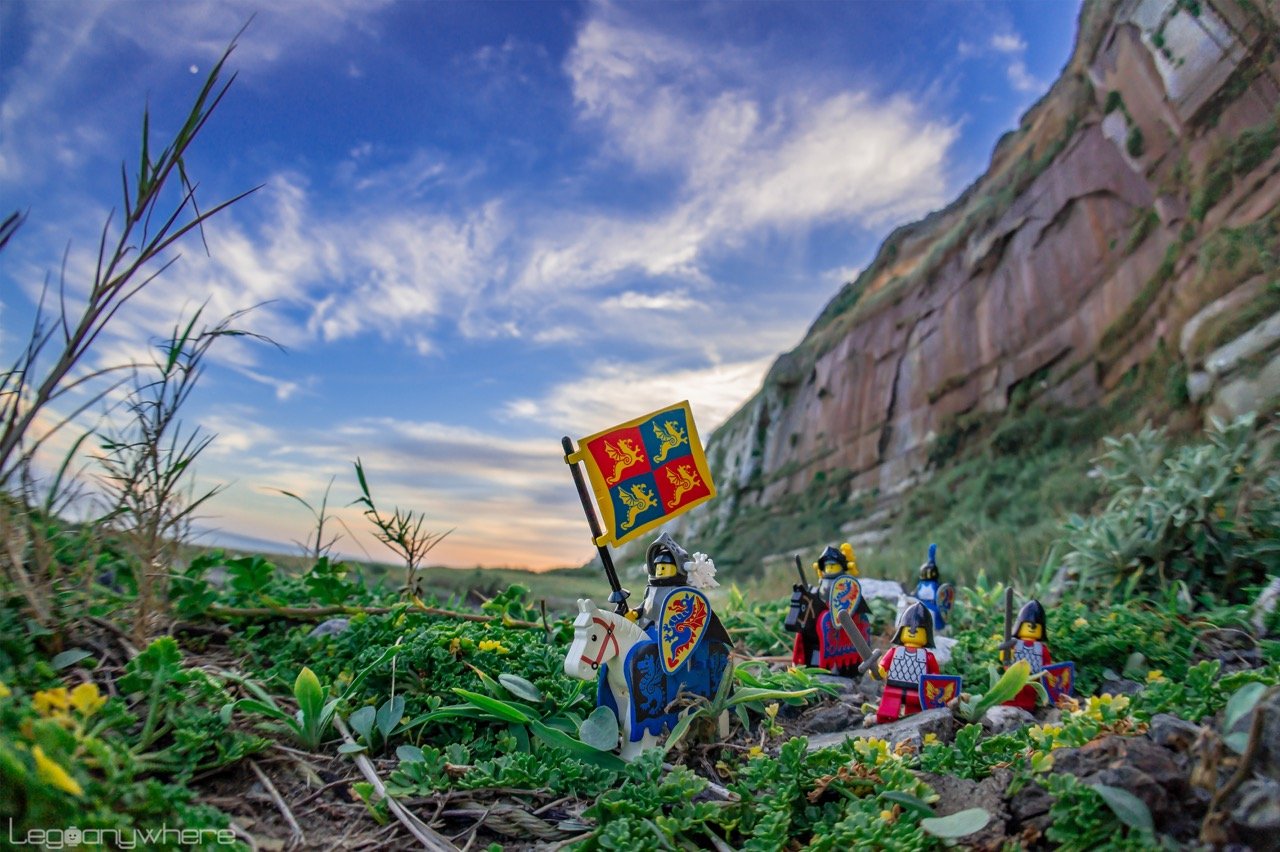
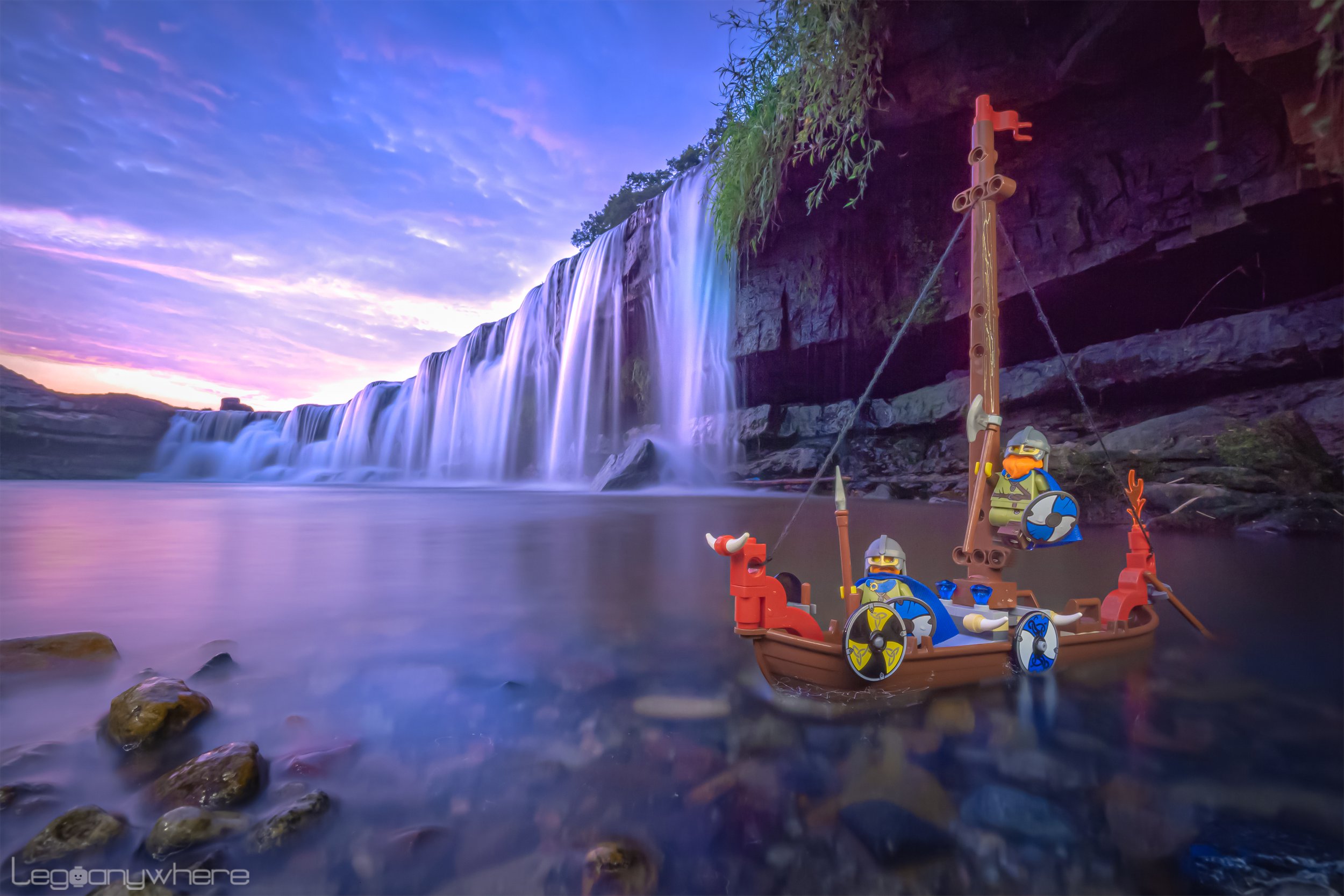
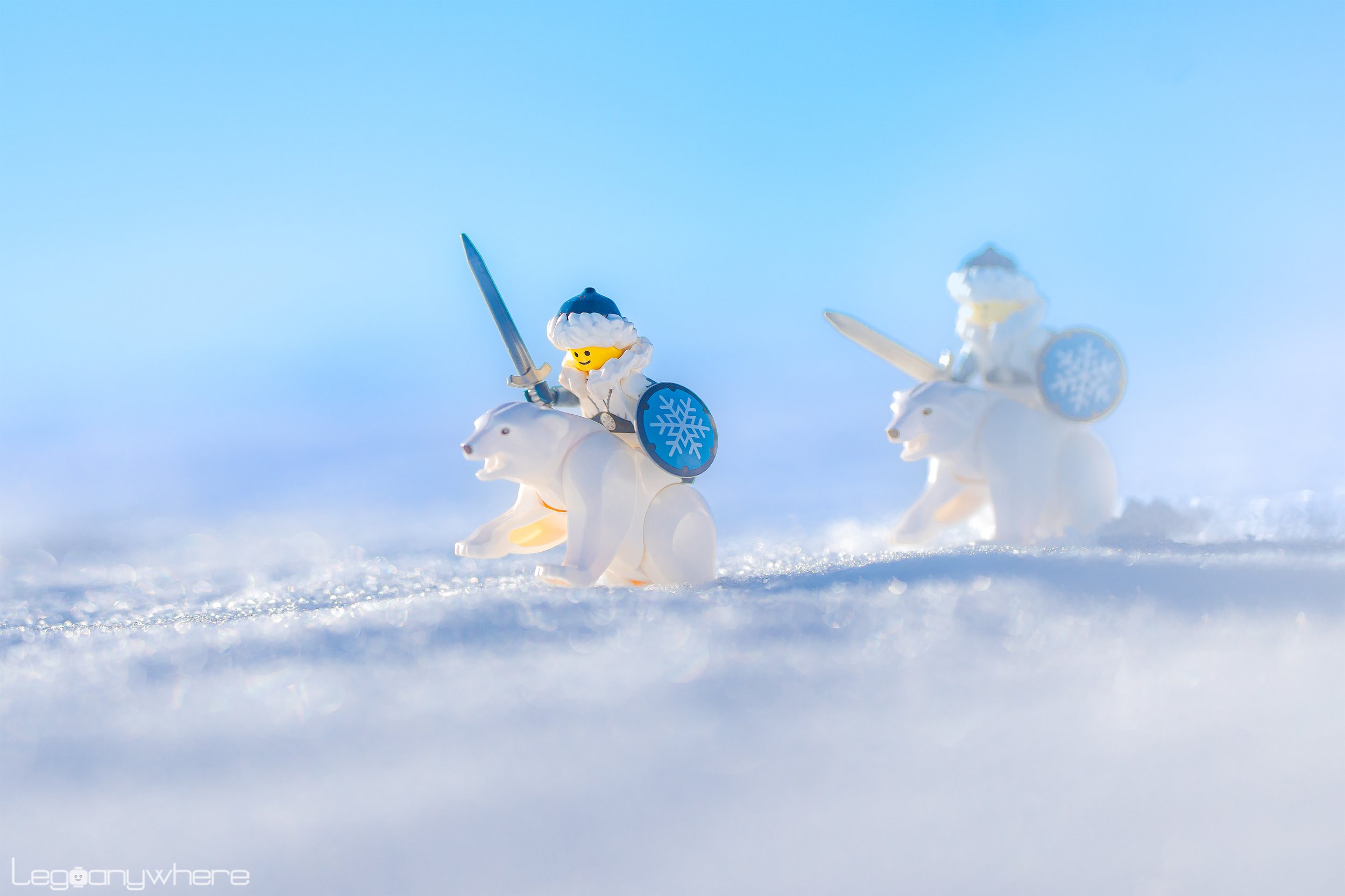
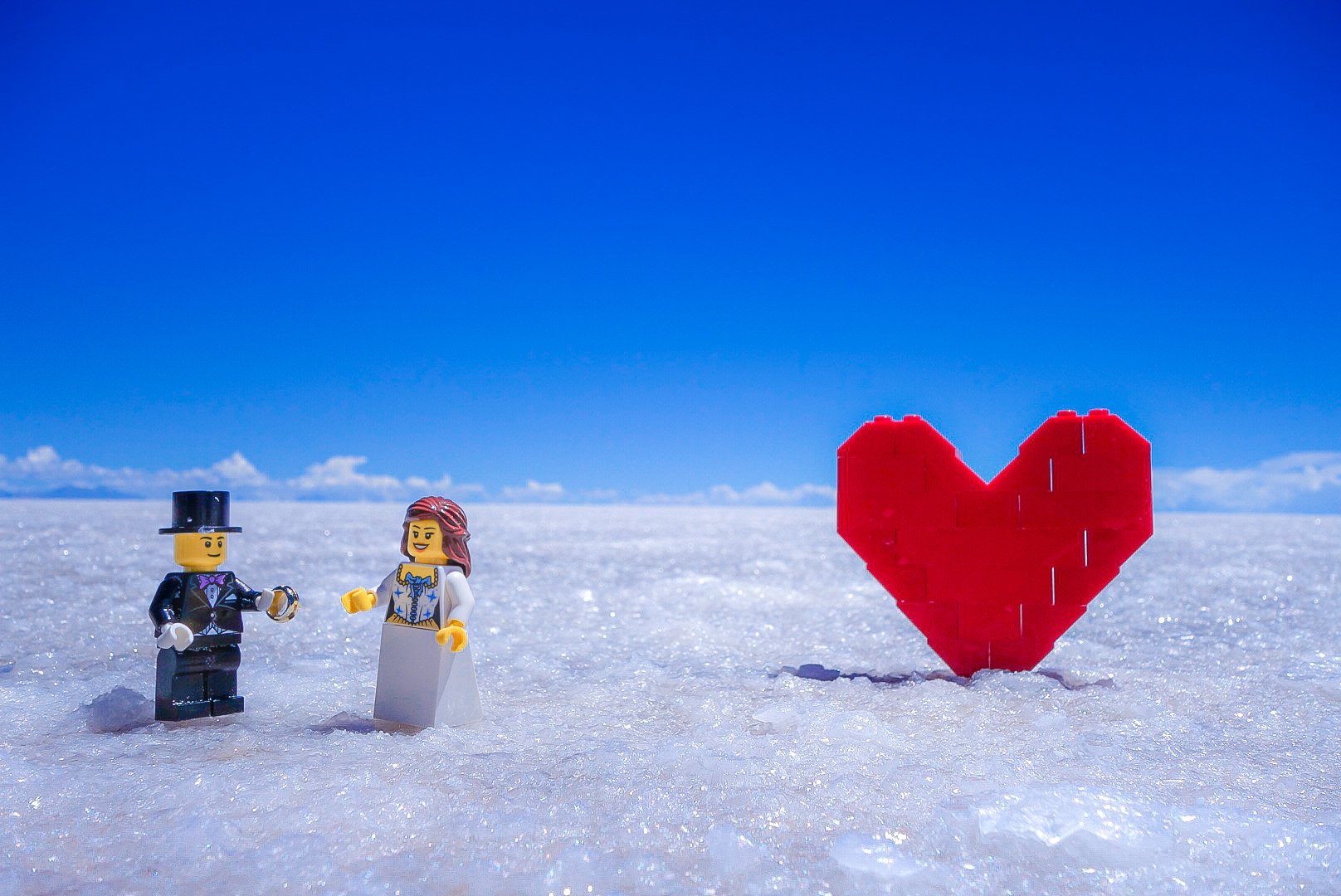
I started taking LEGO photos in 2017. At that time, there were no travel restrictions due to COVID, and I happened to be traveling to various countries for work. As an architect, I enjoyed visiting buildings, cities, landscapes, and natural scenery and taking photos. This didn’t give me much time to play with LEGO at home. So I thought, “Why not take my favorite minifigures with me and capture them together with the scenery of those places?”
It was purely out of curiosity that I started taking such photos. Since then, I have traveled to various countries such as Peru, Bolivia, the United States, Vietnam, India, Indonesia, and many more, capturing LEGO minifigure photos. I draw inspiration from two main sources. One is the LEGO minifigures themselves. If these minifigures were alive, where would they want to go? What would be their homeland or dream destination? I start with these questions. The other source of inspiration is the landscapes of the places I visit. What kind of minifigure would fit in that location? What kind of minifigure would live and thrive there?
Samurai on patrol at the Himeji Castle grounds.
The key is to always give a story to the relationship between the minifigure and the landscape. LEGO is a wonderful toy that allows you to create your own creations by combining blocks. I extend the concept of LEGO by considering the combination and relationship between LEGO and landscapes, and I aspire to take unique photos that are personal to me.
For this early look at a set, I visited Himeji Castle and brought along samurai and ninja minifigures. It felt like there couldn’t be any better minifigures to match this location.
Ninja on stealth mode
The White Heron Castle
I have always loved castles since I was a child. Not only Japanese castles but also castles from Western and Islamic countries. Among them, Himeji Castle, located in Himeji, Hyogo Prefecture, is one of my favorite Japanese castles. I believe I have visited it four times so far.
The allure of castles for me lies in the perfect balance and harmony between their defensive and structural aspects, which are designed to protect against enemies, and their beauty as symbols of authority. Castles were not created solely from an aesthetic perspective, but the aesthetic aspect was not ignored either.
The Beautiful Himeji Castle.
The Himeji Castle is frequently known as Shirasagi-jō (“White Egret Castle” or “White Heron Castle”) because of its brilliant white exterior and supposed resemblance to a bird taking flight. Its white wall is made of plaster and is said to serve two purposes. One is to showcase the power and authority of the castle lord, while the other is to protect against fire. When Himeji Castle was constructed, matchlock guns were prevalent, and to prevent the spread of fire during enemy attacks using matchlock guns, plaster was applied to the walls. Even taking this white wall as an example, it combines an aesthetic aspect of displaying authority and a functional reason for defense.
The castle’s infamous white walls.
Furthermore, this white wall makes Himeji Castle look beautiful in any season. Japan boasts the beauty of its landscapes in every season—the cherry blossoms in spring, lush green leaves in summer, autumn foliage, and winter snow—and Himeji Castle’s allure shines through in every one of these scenic backdrops.
details of the himeji castle.
As for the details, it may be a bit niche, but I particularly love the stone walls. Stone walls have various styles of construction, which differ depending on the period when the castle was built. The exquisite gradients and solidity created by the stone walls further enhance the white wooden keep that stands atop them.
The stone walls of the castle and the machicolation, as described by masayuki.
Himeji Castle is famous for its beautiful appearance when viewed from afar, and the view from the top floor of the keep is stunning. However, I would suggest going closer to the stone walls and looking up at the castle from there. In the past, Japan was said to have had “Ninjas,” and it is believed that ninjas climbed the stone walls to infiltrate the castle.
Interestingly, as a defense mechanism to repel ninjas climbing the stone walls, there are slits called machicolation at the corners of the keep from which stones could be dropped. Going beneath the stone walls and looking up while imagining how the ninjas stealthily infiltrated the castle while avoiding the stones dropped from above as a defense measure can be an enjoyable experience.
Creating a LEGO Castle
After building 21060 Himeji Castle, I can’t find words other than “awesome” to describe it. When viewed from an architect’s perspective, it has captured the details that have made Himeji Castle so well-loved and famous in Japan.
When LEGO meets the real life version.
This set not only features the prominent central keep and the cluster of three small keeps, which are distinctive features of Himeji Castle, but it also includes the expansive square known as Bizenmaru, multiple gates, and sections of the castle walls. By encompassing this scope in the set, we can truly experience the harmonious beauty between the castle’s structure and Japan’s landscape through LEGO.
Moreover, the inclusion of the castle walls and stone ramparts leading up to the main keep, as well as the variation in terrain height, all meticulously recreated in LEGO, contribute to replicating the defensive aspects of the castle. If the set were limited to only the central keep and its surrounding small keeps, we might not have been able to fully appreciate the harmony between the castle and the surrounding scenery or the intricacy of its design.
The attention to detail is truly impressive. One of my favorite details is the skillful reproduction of the machicolation at the corner of the walls. It was perfectly depicted! Even more impressive is that it was achieved using simple 1x1 stud bricks and 1x1 tiles, making it both easy and creatively executed!
I want to raise a toast to the designer of this set for going above and beyond to recreate even these minute features with such accuracy and attention to detail. Cheers!
It’s all in the details, including the machicolation!
Additionally, the depiction of the characteristic curved and overlapping roofs found in Japanese architecture is exceptional.
Beautifully executed roof.
When recreating Japanese castles with LEGO, one of the most challenging aspects is replicating the stone walls, but this set accomplishes it effortlessly and effectively by utilizing slope bricks. Furthermore, the intricate details of the roof tiles, white walls, windows, and other elements are faithfully represented, and surprisingly, not many new parts are introduced. This set demonstrates that with clever use of basic parts, we can create anything.
Although it may be a subtle feature, I like the detail of the small gates on the outer perimeter of the set. The beautiful ambiance of Japanese castle gates is wonderfully captured in this compact 2x4 size. The inclusion of these small gates enhances the prominence of the grand main keep even further, in my opinion.
More details! even the small gates are included!
Furthermore, the landscaping and vegetation are skillfully represented in LEGO, and I love it. Notably, the ability to transform green leafy trees into cherry blossom trees is a great feature. This interchangeability is incredibly simple, allowing you to easily give the castle a different atmosphere for the autumn season using parts you already have. Being able to alter the set’s impression according to the seasons is truly wonderful and adds an extra layer of enjoyment to the overall LEGO experience.
Hope for Himeji
Inez asked me, “How do you feel about LEGO making a model out of one of the most iconic structures in Japan?” I have two complex emotions in response to this question.
Firstly, thank you, LEGO, for this fantastic set! The choice of Himeji Castle and the intricate details of the set are truly amazing! Secondly, I can’t help but feel like I’ve waited for so long. It’s been over 20 years since Japanese castles, samurai, and ninjas appeared in the previous castle series. While many fantastic architectural wonders from various countries have been faithfully recreated as official sets during this time, I’ve been eagerly awaiting this moment. Both feelings coexist, expressing both gratitude for the set’s excellence and a sense of anticipation that has been building up over the years.
I hope to see more famous Japanese tourist attractions recreated as LEGO sets, such as Kinkakuji, Horyuji, and Byodoin Phoenix Hall. On the other hand, from an architectural and LEGO building perspective, I would love to see the National Olympic Stadium (Kokuritsu Yoyogi Kyogijo) as a LEGO set. The stadium’s unique roof structure, suspended like a bridge, creates a beautiful curved roof. I'm genuinely curious to know if it’s possible to recreate this gracefully curved structure with LEGO bricks.
The National Olympic Stadium.
I look forward to more cultural representations and architectural marvels brought to life by LEGO's artistry, continuing to inspire builders and enthusiasts alike on a journey of creativity and discovery.
You can check out Masayuki’s work on his website and Instagram account. LEGO Architecture 21060 Himeji Castle is for around US $160 | EU €160 | CA $100 | UK £140 | AU $260.
DISCLAIMER: This set was provided to BrickNerd by LEGO. Any opinions expressed in this article are those of the author.
Best of BrickNerd - Article originally published July 28, 2023.
What are your favorite details from this set? Will you be getting one for yourself? Let us know in the comments below!
Do you want to help BrickNerd continue publishing articles like this one? Become a top patron like Marc & Liz Puleo, Paige Mueller, Rob Klingberg from Brickstuff, John & Joshua Hanlon from Beyond the Brick, Megan Lum, Andy Price, Lukas Kurth from StoneWars, Wayne Tyler, Dan Church, and Roxanne Baxter to show your support, get early access, exclusive swag and more.





















